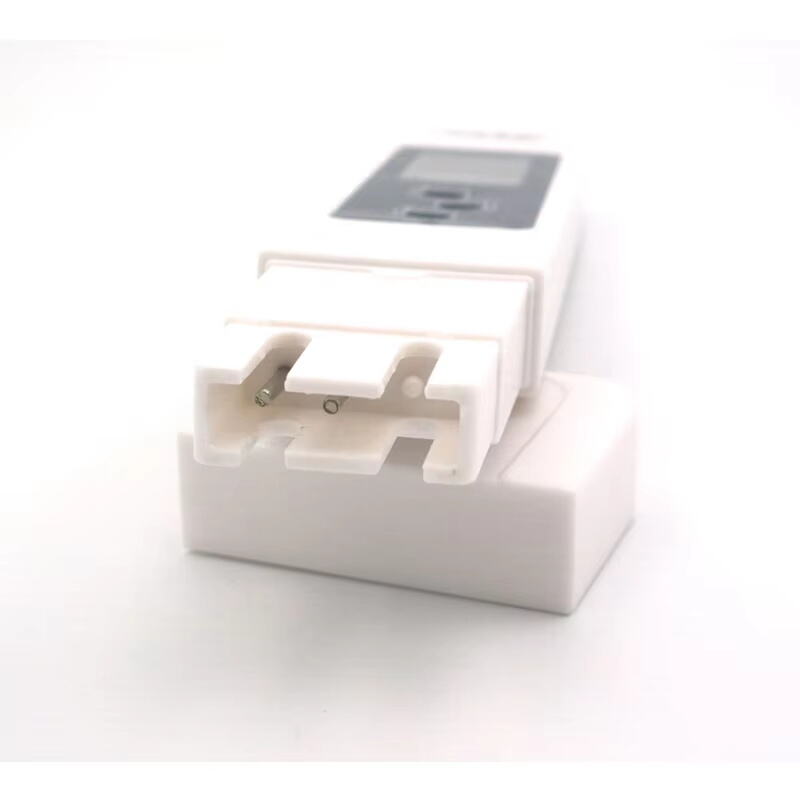Understanding Soil Electrical Conductivity Measurement in Modern Farming
The agricultural industry continues to evolve with technological advancements, and among the most valuable tools for precision farming is the soil EC meter. This sophisticated device measures the electrical conductivity of soil, providing farmers and agronomists with crucial data about their land's characteristics and potential productivity. By understanding and utilizing soil EC meters effectively, agricultural professionals can make more informed decisions about crop management, irrigation, and fertilization strategies.
Soil electrical conductivity measurement has become an integral part of successful farming operations worldwide. The data collected through soil EC meters helps identify variations in soil properties that directly influence crop production and yield potential. This technology has revolutionized the way farmers approach soil management and has become particularly valuable in an era where precision agriculture is increasingly important.
Essential Components and Functionality of Soil EC Meters
Technical Design and Operation Principles
A soil EC meter consists of several sophisticated components working together to provide accurate measurements. The device typically features electrodes that create an electrical circuit through the soil, measuring how easily electrical current flows through it. Modern soil EC meters often include GPS capabilities for precise location mapping and data logging features for comprehensive field analysis.
The measurement process involves direct contact with the soil, where the meter sends a controlled electrical current through its probes. The soil's ability to conduct electricity is then measured and displayed in units of millisiemens per meter (mS/m) or deciSiemens per meter (dS/m). This data is instantly available for analysis and can be integrated into broader farm management systems.
Advanced Features and Technologies
Today's soil EC meters come equipped with cutting-edge features that enhance their utility in the field. Many models offer wireless connectivity for real-time data transmission, cloud storage capabilities, and compatibility with farm management software. These advanced features allow farmers to create detailed soil maps and track changes in soil properties over time.
Some sophisticated soil EC meters also include multi-depth sensing capabilities, enabling measurements at various soil depths simultaneously. This feature provides a more comprehensive understanding of soil variability throughout the root zone, which is crucial for optimal crop management.
Practical Applications in Agricultural Management
Precision Farming Implementation
The soil EC meter serves as a cornerstone tool in precision agriculture. Farmers use these devices to create detailed soil maps that guide variable-rate application of inputs such as fertilizers, irrigation water, and seed rates. This targeted approach helps optimize resource use while maximizing crop yields.
By identifying zones of similar soil characteristics, agricultural professionals can develop management zones for different cropping strategies. This zonal management approach allows for more efficient use of resources and can significantly improve overall farm productivity.
Soil Quality Assessment and Monitoring
Regular monitoring with a soil EC meter provides valuable insights into soil health and quality trends. Farmers can track changes in soil salinity, texture, and moisture content, allowing them to address potential issues before they impact crop growth. This proactive approach to soil management helps maintain optimal growing conditions throughout the growing season.
The data collected through soil EC measurements also helps in identifying areas requiring specific attention, such as drainage improvements or salinity management. This targeted approach to soil improvement leads to more effective and economical solutions to soil-related challenges.
Economic and Environmental Benefits
Cost Reduction and Resource Optimization
Implementing soil EC meter technology leads to significant cost savings through more efficient use of agricultural inputs. By precisely identifying areas requiring specific treatments, farmers can avoid over-application of fertilizers and other amendments, reducing waste and environmental impact while maximizing return on investment.
The ability to map soil variations allows for more targeted irrigation strategies, resulting in water conservation and reduced energy costs associated with irrigation systems. These savings can substantially impact the farm's bottom line while promoting sustainable agricultural practices.
Environmental Sustainability Advantages
Using soil EC meters contributes to environmental conservation by enabling more precise application of agricultural inputs. This precision reduces the risk of nutrient runoff and groundwater contamination, helping protect local ecosystems and water resources. The technology supports sustainable farming practices by promoting efficient resource use and minimal environmental impact.
The data-driven approach facilitated by soil EC meters helps farmers maintain soil health and biodiversity, essential components of sustainable agriculture. By understanding and responding to soil variations, farmers can implement practices that promote long-term soil health and ecosystem stability.

Future Trends and Technological Developments
Integration with Smart Farming Systems
The evolution of soil EC meter technology continues with increasing integration into comprehensive smart farming systems. These integrated solutions combine soil EC data with other sensor information, weather data, and artificial intelligence to provide more sophisticated decision support tools for farmers.
Future developments are likely to include enhanced real-time monitoring capabilities, improved data analytics, and more seamless integration with autonomous farming equipment. These advances will further strengthen the role of soil EC meters in precision agriculture.
Emerging Technologies and Innovations
Research and development in soil EC measurement technology are focusing on creating more accurate, robust, and user-friendly devices. Innovations in sensor technology and data processing are expected to lead to more precise measurements and better understanding of soil properties.
The development of new applications and analysis tools will continue to expand the utility of soil EC meters in agriculture. These advancements will help farmers better understand and manage their soil resources for optimal crop production.
Frequently Asked Questions
How often should soil EC measurements be taken?
Soil EC measurements are typically conducted once every few years for baseline mapping, with additional measurements taken when significant changes in soil conditions are suspected or when implementing new management strategies. However, some farmers choose to measure more frequently, especially in high-value crops or when managing problematic soils.
What factors can affect soil EC readings?
Several factors influence soil EC readings, including soil moisture content, temperature, texture, salinity, and organic matter content. It's important to consider these variables when taking measurements and interpreting results for accurate field analysis and decision-making.
Can soil EC meters be used in all types of agriculture?
Soil EC meters can be used in virtually all types of agriculture, from large-scale commercial farming to small specialty crop operations. However, the specific applications and benefits may vary depending on factors such as field size, crop type, and management intensity. The technology is particularly valuable in precision agriculture systems and when managing variable soil conditions.



